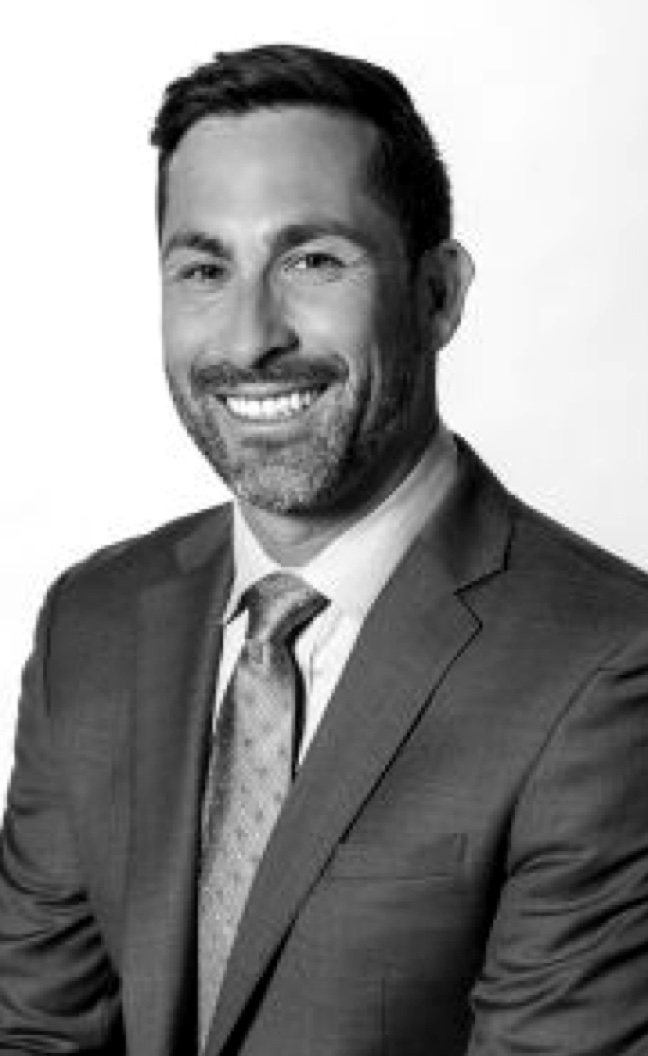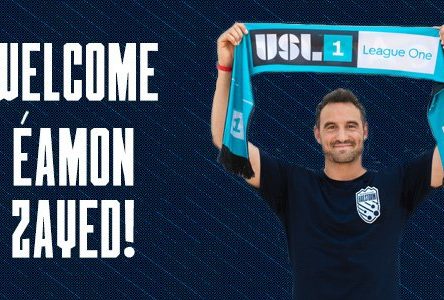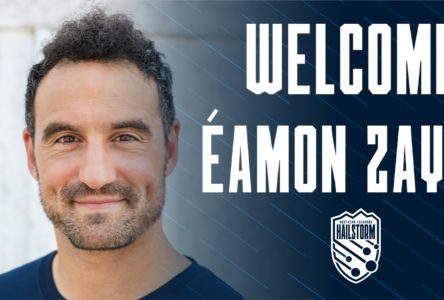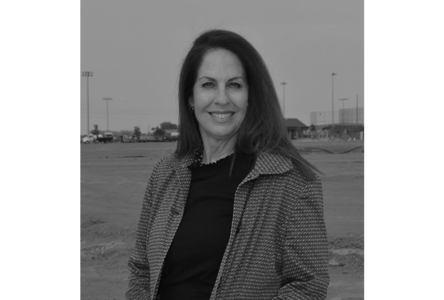
Ryan “Spilly” Spilborghs is a co-founder of the Future Legends Complex. When not working on this project, he is a baseball broadcaster for AT&T SportsNet Rocky Mountain & SiriusXM’s MLB Network Radio. Ryan is a former professional baseball player for the Colorado Rockies, spent time playing overseas, and played collegiately for UC Santa Barbara He lives in Denver with his wife and daughter.
Q: How did you get involved in Future Legends?
A: I have been part of trying to bring a sports complex to Northern Colorado for about 6 years, and many people have helped out to get the project to where it is today. By chance, I read about a project Jeff was involved with in Pueblo. People are taking advantage of sports tourism and the explosion of competitive youth sports. For me, this was never about financial gain. Being a former major leaguer, I wanted to give back. For every team I played on, my dad and I wanted to leave it better than we found it. We fixed the press boxes at my little league, built batting cages and locker rooms at my high school, and fixed whatever we could at the stadium in college. Giving back has been ingrained in my mind, and as a player, I was always involved in community-driven projects.
This project is an opportunity to give opportunities to all kids. I don’t care if you ever play professional sports, that’s not it for me. I want to give kids an environment where they can learn from others and experience other cultures. I had the fortune to play professional sports for 13 years, living in different countries, and making lifelong friends. My perspective of the world has totally changed through sports. I want this to be a place where families can feel comfortable, where there are no inequalities or prejudice. If it was there before, we want the opportunity to educate. Education is the most important thing to me, especially education through sports. Sports doesn’t see race, color, or finances. It’s about whether you can play or not. Jeff and I share the exact same vision about using sports to bring communities together. That’s what we want this site to reflect.
Q: What makes Future Legends different from all other facilities?
A: Future Legends is different because it’s a true stay and play, and the only one with professional sports on site. When I was 10 years old, I had the chance to meet a professional baseball player and it meant the world to me because I saw that player was a human. I would see him on television and think he’s bigger than life, but then I meet the guy and he’s 5 foot 8 inches, the size of my dad. I thought, “If he’s the size of my dad, I can play professional baseball too.” I think it’s important for kids to participate and play, then to see someone who has really dedicated their life towards it. Regardless of your background, we are giving the opportunity to touch and feel a dream. You can see a professional athlete, but once you meet them, you can connect the dots to the dream. I don’t care if someone never plays pro sports, I just want them to connect the dots to what their next few years can be.
Q: What do you hope that families and athletes take away from their time at Future Legends?
A: I hope families take away a different perspective from their time at Future Legends. Families from Philly, Texas, Los Angeles, San Francisco, Japan – around the country, and the world – will be watching their athletes and interacting, regardless of their beliefs or background. They all have the same goal, giving their kids the best experiences and opportunities ever. That is what I think really separates Future Legends, the true stay and play nature, gives families more time to spend together as a family, and with others. A lot of times with these tournaments, you constantly have to move around and do not get to interact with other people. My family met some of our best friends through sports and they opened our eyes to different foods, celebrations, and high fives. We hope that when you leave, you feel like you can impact the community back home with your changed perspective. You might look at somebody different than before now that you had the opportunity to experience sports together.
Q: Why is this project important to you personally?
I held onto this project through all of the pitfalls to impact a group that often gets left behind, which is children with special needs. We are putting in a Miracle Field, which is the true legacy piece for me. I am not doing this for recognition, I am doing this for a chance to give back. This Miracle Field is the reason that I held on. I don’t have a child with special needs, but I want to make sure that those kids and families that are not treated the same as others, totally feel like they are a part of the team. I want them to know that we care and thought about them the entire time. I pictured these kids playing on this field, and they are the reason this entire project is going up. I held on through all the trials and tribulations to get that field. Giving back to that community specifically was the most important aspect of this for me.
Q: Do you have a “legendary sports moment”?
A: My favorite moment being a professional baseball player was actually not my moment. It was watching a teammate, Todd Helton, hit a walk-off home run on September 18, 2007. He’s a legend in Colorado and this was a landmark moment for Colorado baseball history. When you respect somebody, their career, and what they’ve done, in a game that means so much to a lot of people, there is nothing better than watching them have a career-defining moment. That moment for me stands out above all. We ended up going to the World Series in 2007. Being able to revel in someone else’s success is the whole point of playing a team sport. When you get down to the brass tax of anything, successful people are successful because they are a part of a team that is successful. They didn’t do it by themselves, nobody does. My favorite moment really boils down to watching somebody else have success and knowing that I was there and had a little part of it. That’s the true meaning of being on a team.
Q: How have you pivoted your career from looking at it as a professional player to now developer to build Future Legends?
A: Development is not easy. Anyone who says it is, is lying. You are living and dying by this project. There are so many things that can go wrong, from an environmental study to something that we just don’t know about yet. I think what has helped me most from my being a professional baseball player is that failure is a part of the process in both sports and business. I’ve enrolled in an MBA program to learn business better so that I can be much more of an asset. It’s a full-time job trying to put out fires, go to community meetings, listen in on design meetings, and so much more. I’ve had a crash course in business, and am excited to be really in the middle of this project. There are so many smart people involved, I cannot take credit for it all but I’m learning a lot.
Q: What advice do you have for young athletes that may want to become a pro someday?
A: Don’t be afraid to fail, first and foremost. The people that end up doing a job for a long time embrace failure. They learn from it and take those moments to ask somebody, “How do I get better?” Nothing is easy and nothing should be handed to you. You should earn what you get. If you’re not embracing failure then you’re missing the point. I know that it is disappointing when you put in all the time and effort to be good at something and you don’t get it. Those are also the opportunities to redefine yourself, innovate, look for inspiration, look for people to help improve your skillset. When I’m giving advice I usually tell athletes that you don’t have to be a professional athlete to be successful in sport first and foremost. Just because you don’t make it to the pros, you could end up playing until you’re 13 years old, as long as you enjoyed doing it and gave it your best effort, then you did it. You succeeded.
Q: Who is your sports hero and why?
A: My mom was from Guatemala and my dad was from Belgium, I come from immigrants. I am a first-generation from two immigrant parents and grew up in Santa Barbara. My mom was the baseball fan and a huge fan of Fernando Valenzuela, a Mexican-born player who played on the Dodgers. That is why she signed me up for t-ball. The first team I ever played for was the Dodgers and the first number I ever had was #3. Number 3 on the Dodgers at the time was this guy named Steve Sacks. He played the game well and played the game right, and he was my first hero growing up. As I got older, it really boiled back down to my mom who ended up being such an integral part of who I am. She passed away in 2009 but her ability to talk to people, inspire others, and go through hard times makes her my hero. Even though she didn’t play sports, as I got older she ended up being a hero of mine.
Q: What has been the most satisfying part of the process of building future legends? Have you had any breakthrough moments where you finally get across a hurdle?
A: It’s hard to describe because there is always something popping up with the development that you don’t foresee. Then you get through it and then you have a little win. When I start looking back, every issue felt monumental at the time. Then when you look back at these obstacles that you had to overcome, all these small victories are really satisfying. You know that you have gone from that point to all the way over here. I wouldn’t say that there is one satisfying moment, but the starting of sod for the field and moving dirt next week is such a big deal for us. I’ve had a lot of small victory parties, they’re mostly internal, knowing that a defeat is coming soon. I promise you when that first game is played, when the first kid sees the sight, when the first-weekend tournament is being played, I think I’m going to revel in every one of those. I know there is going to be such a sense of satisfaction for members in the community who have put their neck on the line for this project, for the people that have supported it, when they go to that site I’m assuming, it’s going to hit me every time I pull into that parking lot, they will not be able to believe that it is here. I think that I will be satisfied every time I pull into this facility.
Q: What excites you most about Future Legends?
A: The Miracle Field is the most exciting for me. Every component of this complex is such a compliment to each other, from the multipurpose bubble, to the stadiums, dorms, hotels, Windsor’s recreational program, to the retail spaces. When I think about the whole, it’s just amazing. I am going to be the proudest of the Miracle Field. I really do think that field will be able to rally a community together; it is hard not to rally around a group of people that can use support. That goes beyond that field, in general, this site is an opportunity to give back to so many communities of people that may feel left behind elsewhere. I think the overall impact that this site will have will be unmeasurable. That’s what I’m most looking forward to seeing happen because of Future Legends.
Written by: Ashley Kavanagh




